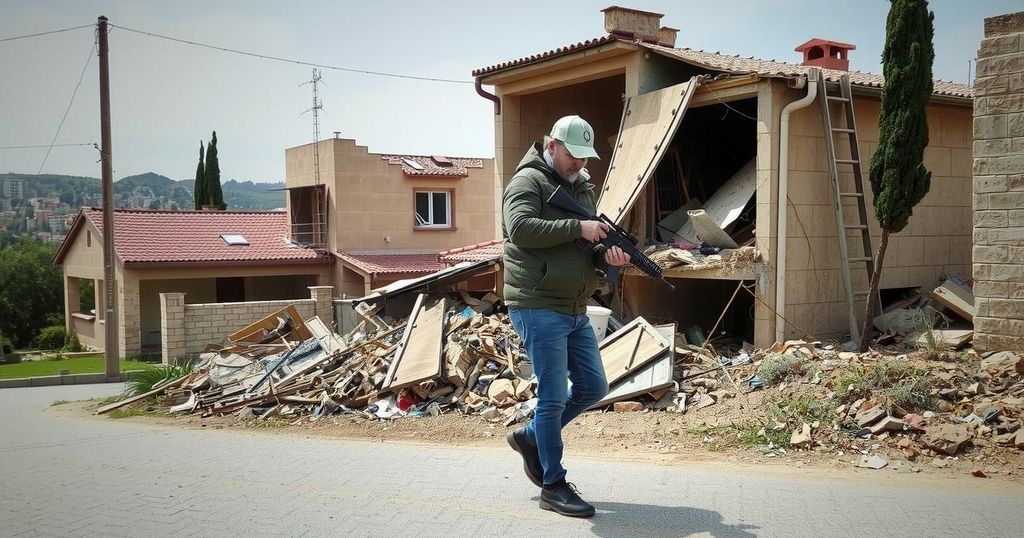Humanitarian Crisis in Gaza: Rising Violence and Aid Delivery Challenges

The humanitarian situation in Gaza is dire, with gangs attacking aid convoys and Israeli military operations further complicating relief efforts. UN officials report a significant rise in the deaths of humanitarian workers, and restrictions on aid have led to widespread suffering. Israel’s actions, including a ban on the UN agency responsible for delivering aid, raise serious concerns about compliance with international humanitarian law. The involvement of private contractors in aid distribution remains a contested issue, highlighting the complex challenges faced in delivering assistance to the region.
The humanitarian crisis in Gaza continues to worsen as armed gangs routinely attack aid convoys, severely undermining international relief efforts. Coupled with Israeli restrictions, these attacks perpetuate malnutrition, dehydration, and preventable deaths among civilians, particularly children. Aid deliveries are further complicated by ongoing airstrikes as the Israeli military targets Hamas, leaving humanitarian workers vulnerable. With over 330 humanitarian workers killed in 2023 alone, the situation has caught the attention of UN officials, highlighting the extreme risks involved in delivering humanitarian aid in Gaza.
Despite acknowledging these challenges, UN and US officials have criticized Israel for not taking adequate measures to protect aid convoys, further complicating the already dire humanitarian conditions. Additionally, the Israeli government has voted to ban the United Nations Relief and Works Agency for Palestine Refugees in the Near East (UNRWA), complicating aid delivery to over two million Gazans. While Israel claims to have valid security concerns, many international observers contend that these actions amount to using starvation as a tactic in warfare.
Furthermore, there are discussions around engaging private contractors to manage aid distribution in Gaza, sparking debate over the practical implications such a move might entail. Legal obligations under international humanitarian law assert that Israel, as an occupying power, must ensure public order and provide for the welfare of Gaza’s civilian population, but accusations persist regarding Israel’s compliance with these mandates. Unquestionably, the rising incidence of troop involvement in attacks on aid convoys underlines the complexity of the current situation, leading to a devastating impact on civilians caught in the conflict.
Ultimately, as economic and security conditions deteriorate, humanitarian organizations find it increasingly challenging to operate, with fears that these trends may lead to further hardship and conflicts without effective interventions. Until a political resolution is reached, the prospect of alleviating suffering in Gaza remains precarious, necessitating urgent international attention and action to restore order and safety for its inhabitants.
The escalating violence in Gaza, particularly since the Hamas-led attack on October 7, 2023, has resulted in a pronounced humanitarian crisis. The combination of airstrikes, armed gang activities, and strict Israeli restrictions on aid have created an environment where civilian needs are not being met. The UN and other humanitarian organizations have expressed grave concerns over their ability to deliver essential services and supplies under such dangerous conditions. International humanitarian law obliges occupying powers to ensure the needs and welfare of the population under their occupation, adding legal complications to the actions of the Israeli government in Gaza.
The ongoing conflict in Gaza has precipitated a severe humanitarian crisis exacerbated by gang violence and Israeli military operations. With international law stipulating Israel’s responsibility to protect civilians and ensure the delivery of aid, the current conditions reflect a failure to meet these obligations. The evolving situation calls for urgent intervention from the international community to address the humanitarian needs and restore order in Gaza, which is pivotal for alleviating the suffering faced by its inhabitants.
Original Source: www.arabnews.com








